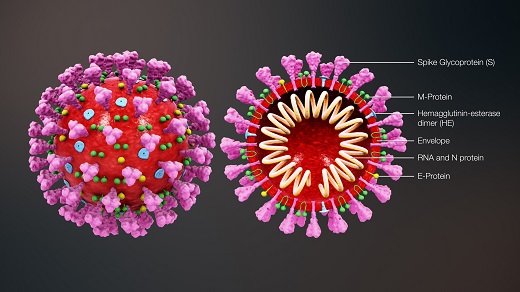
Justice Delayed Is Justice Denied: Courts Should Allow Remote Depositions During the COVID-19 Crisis
By Paul Bland
Executive Director
Many people have reacted heroically during the COVID-19 crisis, caring for others (sometimes at great risk to themselves) and showing humanity and kindness. But, unfortunately, the crisis seems to have brought out the worst in some other people. Specifically, some have taken advantage of the crisis to engage in undesirable behaviors (to which they were prone anyway), and to claim that this was somehow necessary because of the spread of this virus (1).
Their actions threaten to delay or outright deny justice to some of the most vulnerable, and the courts should step in and ensure that does not happen.
When corporations break a law—when they discriminate against someone based upon their gender or race, engage in anti-competitive behavior that tilts the economy towards the most powerful and violates the antitrust laws, or target families struggling to make ends meet through slick scams—and are then sued by people they have injured, corporate defendants generally want to slow down the litigation as much as possible. Their tactic can be described as “delay, delay, delay.” Delays in providing information, delays through multiple motions—anything that puts off a trial or postpones the moment of reckoning is a win for corporations in this situation. Now, citing the COVID-19 crisis, a surprising number of corporate defense lawyers are arguing that the crisis requires that all factual development must completely cease in their cases. How convenient, and how utterly opportunistic in the worst sense of the word.
While defendants are using a number of different delaying tactics (and we will be focusing on some of those in the coming days and weeks), one recurring issue is that corporate defendants are increasingly saying they can’t produce any witnesses. The “logic” often goes like this:
a) it’s unsafe for the witness to have to travel outside their house (a proposition that is generally very fair in America at this time),
b) it’s unsafe for the witness to have a court reporter (or their lawyer, or anyone) to come into the room with them (again, fair enough), and
c) they refuse to have a videoconference deposition where their attorney and/or court reporter is not in the same room as the witness.
That last one is foolish and designed specifically to stop justice in its tracks. And conveniently, under this line of argument, witnesses who know if a corporation has behaved illegally can’t testify at all, indefinitely.
That’s wrong and unconscionable, and Public Justice is allying with our friends and members who represent consumers, workers and others to beat back this attempt to block access to the courts and delay and deny justice for those who have been wronged.
As a start, we have gathered a variety of legal resources showing that the civil justice system should not, and does not need to, indefinitely grind to a halt, and that depositions can continue to go forward. Here is a link to a new page on our website collecting these orders, opinions, and sample briefs: https://www.publicjustice.net/resources-for-plaintiffs-lawyers-during-covid-19/
The resources we have collected include emergency rules from a number of state Supreme Courts. For example, the Supreme Court of Florida has entered COVID-19 Emergency Procedures for the Administering of Oaths via Remote Audio-Video Communications Equipment (issued March 18, 2020), which provides for oaths to be administered remotely and suspends any Florida rules, orders or opinions that might be read to limit or prohibit the use of audio-video equipment to do so. And a number of other states have issued similar orders. We also have a number of decisions in particular cases allowing remote depositions, and some sample briefs.
This battle is important for thousands of cases that are already underway. And, unfortunately, we know from past crises that this kind of situation brings out all types of new scams and abuses. Predatory corporate conduct exploded in the wake of the 2008 financial crisis. And the COVID-19 crisis is resulting in workers unnecessarily being exposed to dangerous and unsafe working conditions, among other problems. A functioning, effective civil justice system is an important check on predatory and illegal corporate conduct.
We also want to ask a favor from you, as well. Our members across the country are the single best resource for others who are in this fight with us, together. If you have or encounter additional resources that could support plaintiffs who are encountering dilatory or abusive litigation strategies, please share them with us. Send an email bearing the subject line “COVID-Delays” to Public Justice Staff Attorney Stevie Glaberson, at sglaberson@publicjustice.net. We’ll add them to this important new webpage.
These are challenging times in our country, but it is during times of great challenge that our courts have always stood apart as an instrument of justice for the vulnerable and those who are cheated, scammed and discriminated against. All of us at Public Justice are proud to be allies with all of you in ensuring that work continues and that our courts remain (virtually) open and working for all.
_______________________________________
- E.g., Rebecca Beitsch, EPA suspends enforcement of environmental laws amid coronavirus, The Hill (March 26, 2020). It’s hard to imagine how a disease that attacks peoples’ respiratory systems could justify allowing more air pollution. See Miro Korenha and Monica Medina, In 2020, Let’s Talk More About Air Pollution, Our Daily Planet (January 11, 2020) (“Many epidemiologic data support the association between ambient air pollution and all-cause mortality and morbidity, mainly from respiratory and cardiovascular diseases, particularly in the elderly….”)

